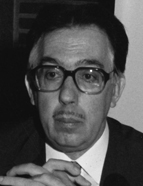

From the late 1980s until his death, he invested his knowledge and vital strength, as director, coordinator, and author in the publication of the Nova História de Portugal [New History of Portugal] and in the Nova História da Expansão Portuguesa [New History of the Portuguese Expansion], two projects he shared with Joel Serrão, in collaboration with many historians from different generations. In 1987, volume four of the Nova História was published, exclusively authored by Oliveira Marques, entitled Portugal na Crise dos Séculos XIV e XV [Portugal in the Crisis of the Fourteenth and Fifteenth Centuries], which is presented as a model of the general scheme to be followed in all the work, articulating structures and conjunctures, and largely representing demography, social groups, technology, production means and systems, political dynamics, religion, art, culture, and daily life. This inaugural book is still a reference today in the study of the history of Portugal in the Early Middle Ages. Until the end of his life, nine volumes of the Nova História de Portugal were published, although it was difficult sometimes to meet publication dates or other deadlines (two revised volumes were never published). Eight of the planned twelve volumes of Nova História da Expansão were published, most of the first volume having been written by Oliveira Marques, A Expansão Quatrocentista [Fifteenth-Century Expansion], with the clarity and systemization that were typical of his writing. The impact of this enormous task clashed with contemporary publishing within which many other Histories of Portugal had appeared. But the wealth of information, accuracy, well-grounded historical interpretation, and crystal-clear writing were the major imprint Oliveira Marques wished to bequeath and, in general, may be observed in the many books of the New Histories, most of which were authored collectively. Oliveira Marques was also attentive to the study of the past of university institutions, particularly of the Faculdade de Letras de Lisboa, the institution from which he had graduated and where he had taught, and to the evocation of Portuguese historiography and historians in works such as Ensaios da Historiografia Portuguesa [Essays of Portuguese Historiography] (1983) and Antologia de Historiografia Portuguesa [Anthology of Portuguese Historiography] (1974, 1975), where major prominence is given to Alexandre Herculano, as the historian, citizen, and politician he much admired (Luís Miguel Duarte, Na Jubilação Universitária…, 2003, pp. 155-175).
The more intimate and personal profile of this Man and Citizen is revealed in his interview with João Pedro Ferro on his sixtieth birthday, and is condensed in A. H. de Oliveira Marques. O Homem e o Historiador [A. H. Oliveira Marques. The Man and the Historian]. This interview unveils the engaged Citizen, the democrat who, when still in high school, campaigned for Norton de Matos, who sided with the students in the 1962 university strike, who was a supporter of General Ramalho Eanes in 1980, who stood for the values of Liberty, Equality and Fraternity.
